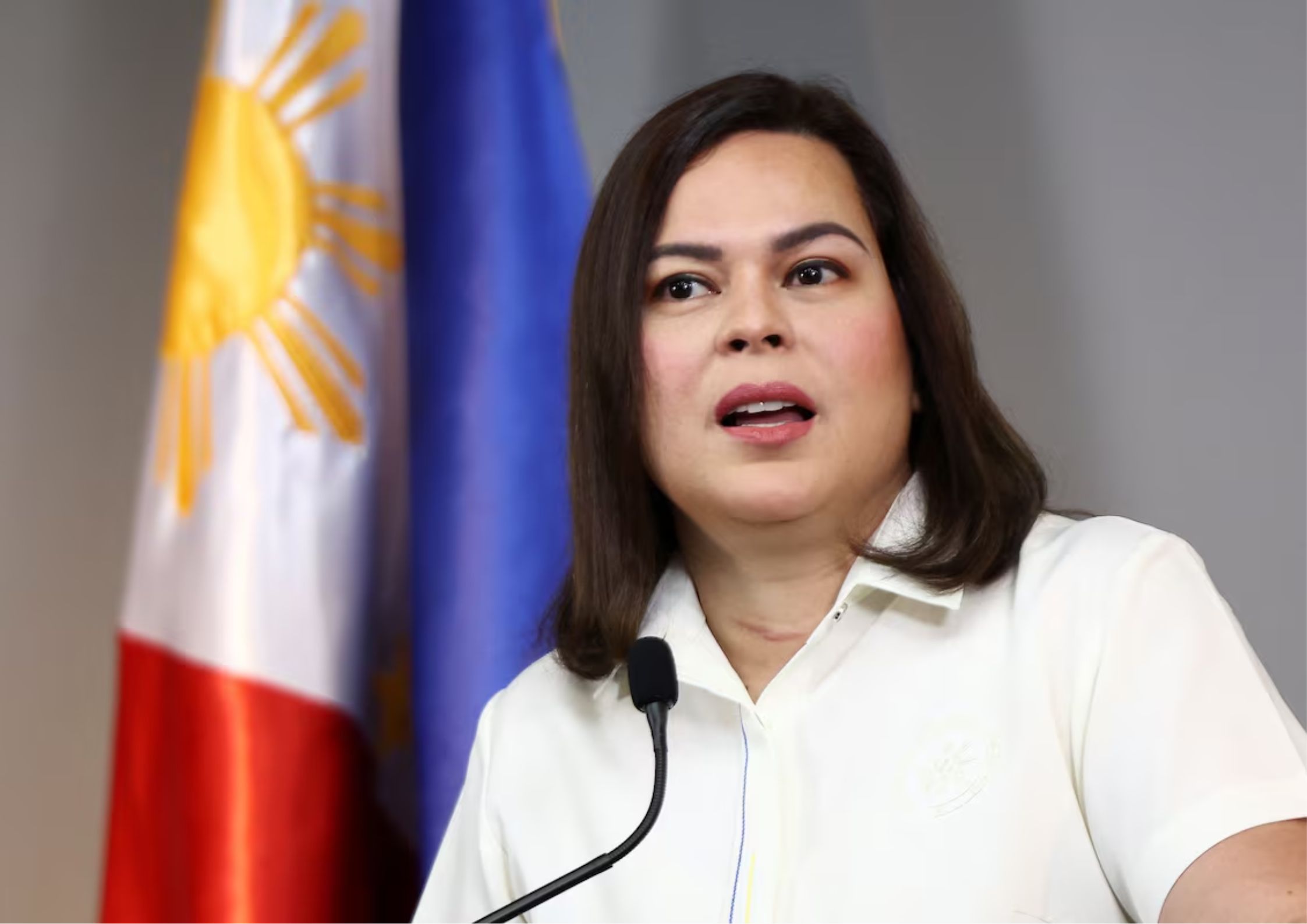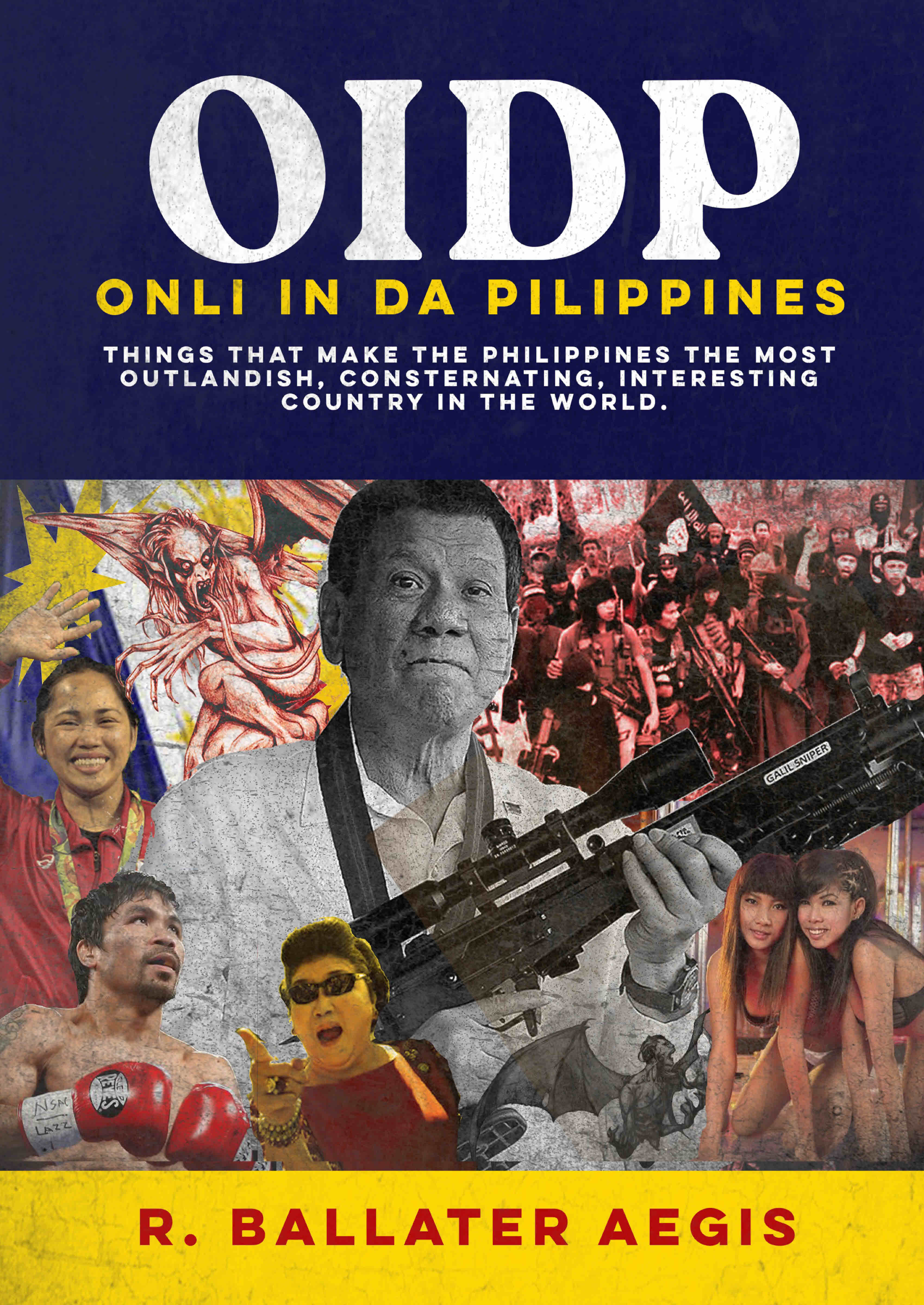Imagine a scenario where Vice President Sara Duterte ascends to the presidency amid escalating tensions following the 2025 arrest of her father, former President Rodrigo Duterte, on an International Criminal Court (ICC) warrant and ever-increasing tensions between the Marcos and Duterte clans. The arrest, executed under the auspices of President Ferdinand "Bongbong" Marcos Jr.'s administration, sparked accusations of collusion with international bodies. Sara has gone on record blaming “mga puti” ("the Whites” or white people in general), a pointed reference to Western powers like the United States and European nations, for enabling the arrest through diplomatic pressure and support for the ICC investigation into her father's controversial "war on drugs." This resentment could reshape the archipelago's governance and foreign relations, with profound consequences for U.S. / European military personnel and diplomats stationed in or engaging with the Philippines. Drawing from her known positions expressed in the past and the family's political legacy, below is what such a presidency might entail.
A Return to Strongman Rule and Polarized Politics
Often called "Inday Sara” – the former employed as a term of endearment for a beloved girl or young woman in the Bisayan/Visayan dialect - has long been seen as heir to her father's populist, iron-fisted style of leadership. As president, she might revive and intensify policies reminiscent of Rodrigo’s tenure from 2016 to 2022, which emphasized law and order at the expense of human rights concerns as decried by international observers. The "war on drugs," which led to thousands of extrajudicial killings and prompted the ICC probe, could see a resurgence, framed as a necessary response to crime and corruption perceived by her as having reignited under BBM’s time. Sara has publicly defended her father's actions, disparaging his arrest as "oppression and persecution," so it stands to reason she might feel compelled to use the power of the Presidency to dismantle ongoing investigations or provide amnesty to Duterte supporters also under ICC scrutiny.
Politically, a Sara administration could deepen divisions within and without the Philippines. The fallout from her father's arrest has already terminally fractured what was left of the Marcos-Duterte alliance, with Sara accusing the Marcos government of outright betrayal. In power, she might purge Marcos loyalists from key institutions, including the military and judiciary, to consolidate control. This would lead to a more authoritarian governance model, with crackdowns on dissent, media restrictions, and empowerment of local strongholds like Davao City, where she previously served as mayor. Economic policies might again prioritize infrastructure deals with non-Western partners, echoing her father's pivot toward China, potentially boosting short-term growth but risking debt traps and environmental concerns.
Domestically, the Philippines under Sara could experience heightened polarization. Her rhetoric, including demands for her father's release from ICC custody and criticisms of foreign interference, might rally nationalist sentiments among her base while alienating urban elites and pro-democracy groups. Issues like education - where she served as secretary before resigning - and women's rights could see mixed progress. Sara has positioned herself as a pragmatic leader, but her family's history of controversial statements and alleged corruption might undermine broader reforms. In an extreme scenario, such actions could spur secession movements within tribal powers of provinces like Ilocos Norte (potentially pulling in Sur), Cebu (Kabisayaan conglomerate), Palawan (del Norte+Sur), and the BARMM.
Potential Anti-Western Sentiment and a Re-Tilt Toward China
Sara Duterte's views on international relations are heavily influenced by her father's pro-China, anti-Western stance. She has openly criticized Marcos' alignment with the U.S., advocating for an independent foreign policy that avoids "clinging" to superpowers like America or Europe. Analysts suggest her administration could mirror Rodrigo Duterte's era, warming up ties with Beijing again while cooling relations in Washington and Brussels. In cases where she explicitly blames Western Nations for her father's arrest, tying it to U.S. support for Marcos and European-led ICC proceedings, this resentment could accelerate into diplomatic rupturing.
Reduced cooperation on global issues like climate change and counterterrorism would be anticipated. Sara has slammed U.S. - leaning policies in public rallies and interviews, positioning the Philippines as neutral but practically favoring Asian alliances. This might involve renegotiating or abrogating agreements like the Enhanced Defense Cooperation Agreement (EDCA), which allows U.S. military access to Philippine bases, or withdrawing from joint exercises in the South China Sea. Closer economic ties with China would follow, including restarting Belt and Road Initiative projects cancelled by BBM, potentially escalating territorial disputes.
Consequences for U.S., European, Allied Military and Diplomats
The most immediate fallout would hit Western military and diplomatic personnel. The U.S., with its longstanding alliance under the 1951 Mutual Defense Treaty, maintains a significant presence in the Philippines through rotational troops, joint training, and bases under EDCA. A Sara Duterte presidency fueled by an anti-Western mindset could lead to:
-
Expulsion or Harassment of Diplomats:
Accusations of interference in the Duterte arrest might prompt the expulsion of U.S. and European envoys. Sara has already urged supporters abroad to highlight "injustices" done to her father, signaling a willingness to confront Western governments directly. This could mirror her father's threats against U.S. and E.U. ambassadors, resulting in visa restrictions, surveillance, or public shaming of diplomats accused of "meddling."
-
Restricted Military Access:
U.S. forces could face curtailed base access or outright eviction, undermining America's Indo-Pacific strategy against China. Joint exercises like Balikatan might be canceled, and intelligence-sharing reduced, weakening regional security. European nations, Australia and New Zealand, though with much smaller footprints, could see similar pushback, especially if tied to the ICC. Military attachés from those countries might be declared persona non grata.
-
Safety and Operational Risks:
In a charged atmosphere, Western personnel could encounter protests or targeted harassment. Sara's nationalist rhetoric might embolden anti-Western groups, leading to increased security threats for embassies and bases. Diplomatically, aid and trade deals could be frozen; for instance, U.S. funding for Philippine development could be withheld in retaliation, but this may backfire by pushing Manila further toward China.
-
Broader Geopolitical Shifts:
Europe, already involved via the ICC, might face boycotts of its institutions or reduced cooperation on human rights. The EU's trade agreements with the Philippines could face jeopardization, affecting sectors like agriculture, fisheries and electronics. Overall, this could signal a realignment in Southeast Asia, with the Philippines drifting from the Quad (U.S., Japan, India, Australia) toward BRICS-like groupings.
A Potentially Volatile Future with Global Implications
A Philippines led by President Sara Duterte in this scenario would be more inward-looking, authoritarian, and China-oriented, haunted by the shadow of her father's arrest and perceived Western treachery. While it might stabilize certain domestic issues through decisive action, the risks of isolation and conflict escalation loom large. For U.S. and European stakeholders, the consequences could range from diplomatic isolation to strategic setbacks in the Indo-Pacific. As the 2028 elections approach with Sara positioning herself as a frontrunner, this hypothetical near future underscores the fragility of alliances in a multipolar world. The true test will be whether pragmatism tempers resentment or if personal vendettas redefine a nation's path.

